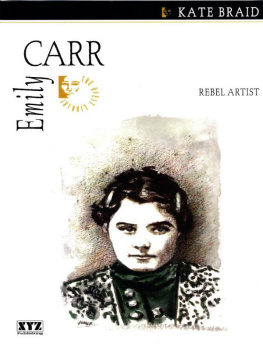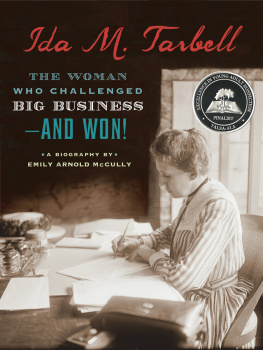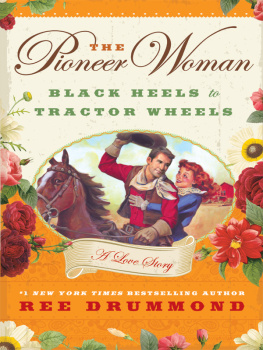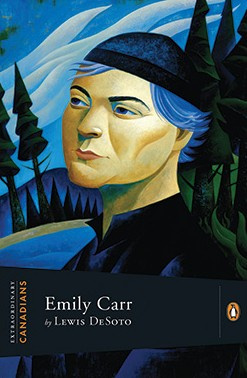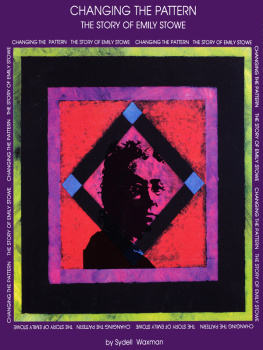Barakaldo Books 2020, all rights reserved. No part of this publication may be reproduced, stored in a retrieval system or transmitted by any means, electrical, mechanical or otherwise without the written permission of the copyright holder.
Publishers Note
Although in most cases we have retained the Authors original spelling and grammar to authentically reproduce the work of the Author and the original intent of such material, some additional notes and clarifications have been added for the modern readers benefit.
We have also made every effort to include all maps and illustrations of the original edition the limitations of formatting do not allow of including larger maps, we will upload as many of these maps as possible.
A Pioneer Woman in Alaska
By
EMILY CRAIG ROMIG
Table of Contents
Contents
Table of Contents
REQUEST FROM THE PUBLISHER
DEDICATION
This little book is dedicated to the brave and faithful pioneer women who have lived in Alaska
Foreword
MUCH has been written in verse and song and even on the screen about the dance-hall girls or the glamour girls of the gold-rush days.
They came with the stampede, and left when the free-money days were over. They played their part; let your imagination fill in the role, and give them praise for the good they did.
The pioneer wives, though unsung, and for whom few poems were written, no stage screens set, and no glamour attached, deserve a place in the land of the midnight sun. They came with their husbands for better or for worse, to endure hardship and privation, isolation and dangers, but they also had joys and happiness in their little log cabins in the remote wilderness. They are the women who kept the campfires burning, the little candle or oil lamp shining out over the Arctic snows.
In camps where there was perhaps one such woman to fifty miners or stampeders, they found joy in helping the sick or those who suffered an injury or perhaps a frozen foot. Those who were down and out in many instances could trace their recovery to these grand women of the North.
This story of Mrs. A. C. Craig is similar to the experiences of many more brave women and faithful, dutiful wives who went north in the gold-rush days, true women who played their part so well that they should not be forgotten.
Alaska is noted for its beautiful flowers blooming all over that distant and isolated region. The forget-me-not, a flower common in that land, should be the emblem of every pioneer woman, and be tattooed on the chest of every man who was so fortunate as to have such a wife in the early days of that faraway land.
THE DOG-TEAM DOCTOR
Illustrations
Eight members of the Dawson stampede party
Sundogs at Fort Resolution, Canada
Northern Lights in the Arctic
The most northern American flag ever made
Miners dropping down the Porcupine River salute the American Flag
A. C. Craig and wife, the long journey over, where the Porcupine River meets the Yukon River
Captain Amundsens pocket compass
A PIONEER WOMAN IN ALASKA
The Life and Travels of a Pioneer Woman to and in Alaska 1897 to 1944
WHEN I was a little girl, eleven years old, my father died, and my mother passed away six weeks later. I then left Copenhagen, where my brother and I were born, to live with my aunt, who conducted a large, select school for girls, in a near-by town by the name of Fredericia. There is where I attended school until my education was finished, at the age of seventeen. We were given a good start in German and English, which was very beneficial to me later on.
My brother was fourteen years older than I, and had gone to America several years before I finished school. He had not written or heard from home for years, but on learning that our parents had passed and that I was alone, sent me a ticket to come to the United States, saying he would meet me in New York. My aunt was very much opposed to my going, as she had hoped would become a teacher, and help with her work, because she was getting along in years; also she disliked the idea of my traveling alone from Hamburg to New York. Finally we heard of a young couple with a baby who was going by way of New York to Chicago, so I was able to travel with them.
After some difficulty we secured first-class passage on a good ship, and from here on, my knowledge of German and English came in handy, as I was the spokesman for our party. The officers and crew were nice to us, and the trip across the Atlantic was a very pleasant one, but the landing was marred when our ship ran into our pilot boat and cut her right in two. I will never forget the poor people trying to save themselves, grasping any old piece of board or floating thing, and calling for us to help save them. I never heard how many were drowned, but we picked some of them up.
Castle Garden was a great sight to me, but the Statue of Liberty will never fade from my memory. My brother met me at the dock, and with his help we were soon on the way to his home in Perth Amboy. My visit with my brother was of short duration, for before I was fairly settled, a wire came from Chicago saying the baby of the family with whom I had traveled was sick, and asking me to come and help the little mother care for her. It was planned that I would return to my brothers home. I never saw him again, as he was killed in a snow-slide on his way to Dawson; we had agreed to meet in Dawson when the gold rush was on.
1 Chicago
THE FAMILY I was living with in Chicago had a large hotel and apartment housethe baby passed away, and I continued to stay with them. There I met several young people, among them a Mr. A. C. Craig, who also came from Copenhagen. He was in the contracting and building business, and doing very well. Soon he devoted some time to me, and I thought he was interested in hearing from his home town. His interest became more and more personal, and he was more solicitous than I was accustomed to, and I too became interested in contracts and contractors. Before long our mutual interests fused into the bonds of matrimony, and in the fall of 1887 I was a happy bride.
Our married life in Chicago was ideal, and the New World was filled with joys that my childhood had never pictureda good home and a loving husband, horseback and buggy rides, pleasant surroundings, and the loneliness of being an orphan changed to contentment and comfort. Little did I know how far this love and duty would take us bothour affection never wavered, and our love remained firm, when all about us on the trails of the North men seemed driven into a frenzy, and the best of friends became bitter enemies.
Early in the summer of 1897 the electrifying news of the Klondike gold strike was seen in all the Chicago papers. My husband read every word about the gold fields, and at night would talk about the reports of the gold in Alaska, and when he was at work I would read the same pages and thrill at the stories. Once he told me of seeing nuggets, and plenty of them, in a jewelers window on State Street, and his eyes had a long and faraway look in them. The next day I hunted up the store, and there, sure enough, was the gold. People were standing in large numbers trying to get a close-up of the precious metal, and to see the nuggets. Being short, and not too strong, it took me some time to get close enough to see for myself. From then on I could believe any gold storywe both caught the gold feverand that is no childhood disease, either.





